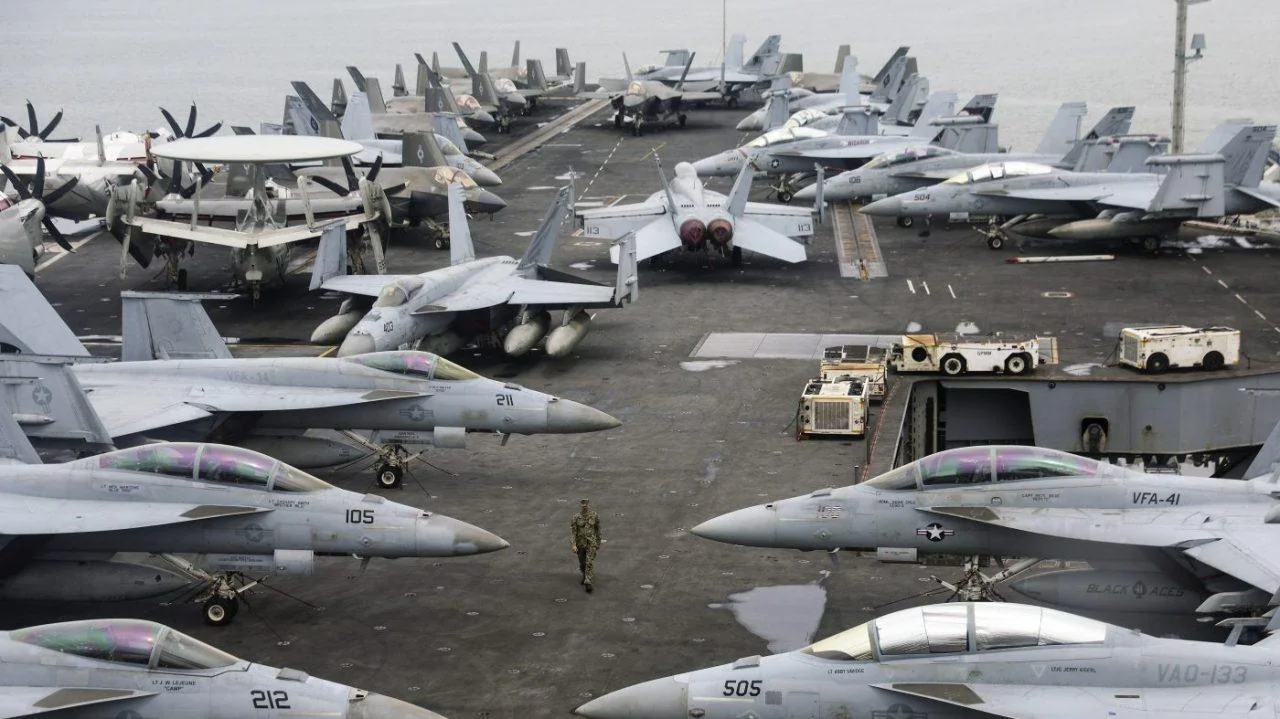The US has more than 50,000 troops in Japan at nearly two dozen bases, part of a presence maintained since Japan surrendered to the US at the end of World War II. The post-fascist reconstruction as a constitutional monarchy saw the US include a clause mandating neutrality in Japan’s constitution.
At least 200 people rallied on Okinawa on Monday to protest against continued flights over Japan by US Air Force V-22 Osprey tilt-rotor aircraft after Washington refused a request by Tokyo to ground the aircraft. A day prior, the wreckage from a crashed Osprey and the remains of five crewmembers were discovered in the waters of nearby Kagoshima Prefecture.
The demonstrators gathered in Kadena in front of the headquarters of the Okinawa Defense Bureau, one of the Japanese Defense Ministry’s eight regional bureaus. Protesters delivered a letter to bureau officials demanding the Ospreys be blocked from flying until an investigation into the crash last week can be completed, and they chanted slogans against the tilt-rotor aircraft, which is notoriously crash-prone.
“It is so sad that another young American man’s life was sacrificed and others are still not found,” protest organizer Yuji Fukumoto of the anti-base group All Okinawa shouted into a microphone. “Ospreys are still flying in Okinawa and all over Japan. We must strongly request once again not to fly them over us.”
The US has two massive air bases on Okinawa: Marine Corps Air Station Futenma and Kadena Air Force Base, along with a host of other facilities. The problems caused by the US military, which include falling debris, noise, and pollution, have aroused a strong activist movement that has frustrated attempts to expand the Pentagon’s presence on the island.
More recently, the possibility of a US war with China or North Korea have provoked protests at US military sites across Japan that are likely to become targets, preventing the construction of several Aegis Ashore anti-missile bases.
Last Wednesday, a CV-22B Osprey stationed at Yokota Air Force Base near Tokyo crashed into the waters off the island of Yakushima, to the north of Okinawa.
The body of one person aboard was immediately found by search and rescue operations, but the remains of the other five were only discovered over the weekend, when the wreckage of the crashed aircraft was recovered.
The cause of the accident is not yet known, although one fisherman told Japanese media he saw the aircraft’s left engine on fire as it plummeted into the sea. The plane has a unique tilt-rotor system that allows its huge propellers to either spin vertically or horizontally, enabling it to fly either like a helicopter or a fixed-wing aircraft. While theoretically it makes the Osprey a nimble transport and patrol aircraft, in reality the plane has become infamous for its deadly crashes.
After the plane went down on Wednesday, Tokyo grounded all 14 of its Ospreys and asked Washington to do the same until a probe into the crash could provide answers. The aircraft has been grounded several times in the past, most recently last year, following a series of safety check failures.
Japanese Foreign Minister Yoko Kamikawa told reporters on Friday that Tokyo’s request had been denied, with Japanese media reporting that day that Osprey flights from Futnema had been observed.
Chief Cabinet Secretary Hirokazu Matsuno, the main spokesperson for Prime Minister Fumio Kishida’s government, called Washington’s decision “deeply regrettable,” saying that “flights are being carried out without sufficient explanation about safety, despite repeated requests from Japan.”
“These Ospreys should not have been deployed at all,” one Okinawan protester on Monday carrying an anti-Osprey sign told a US military-affiliated media outlet.
“It is so scary; it could have crashed in Kadena,” she said. “They must not fly and must be withdrawn.”




